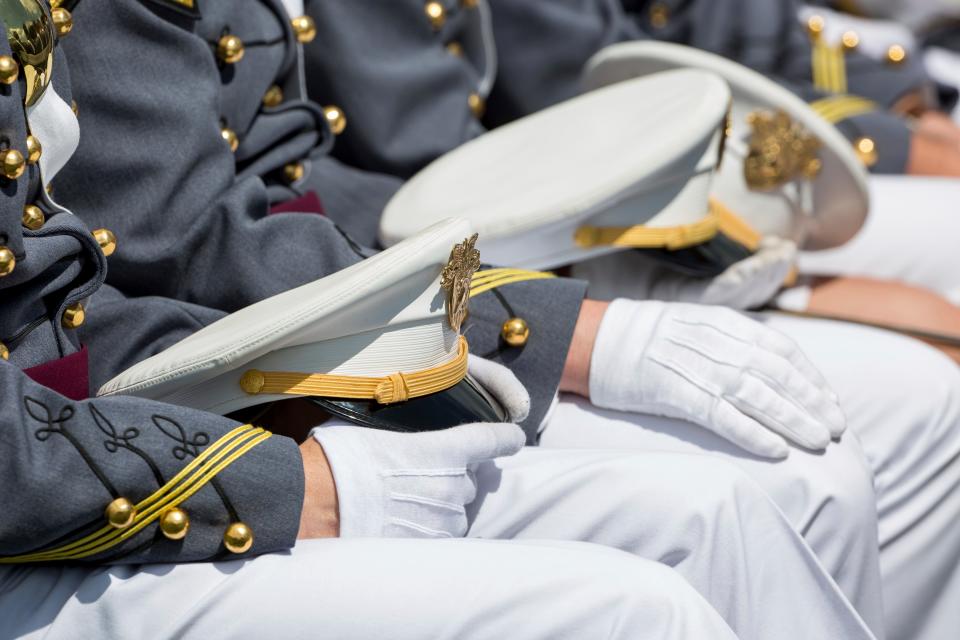I used to defend military justice. Then a cadet's West Point rape conviction was reversed.

Three military appellate judges last week overturned U.S. Military Academy Cadet Jacob Whisenhunt’s conviction for raping a sleeping classmate, which had earned him a 21-year sentence. The court cited a lack of evidence to prove the sex wasn’t consensual as the reason for its decision. I recently graduated from a U.S. service academy, and I’m often asked about the culture surrounding sexual assault that I experienced and my opinion of the military’s treatment of sexual assault cases.
Until now, I’ve been very proud to defend the way cases were handled, how seriously sexual assault was viewed, and how important training regarding sexual assault was to the community. Even after my own brief encounter with unwanted sexual contact, I felt confident in the values of those around me, because I had classmates, particularly male ones, immediately come to my defense.
However, the reversal of Whisenhunt’s conviction has convinced me that even with the growth in service academy training, sensitivity and care regarding sexual assault cases, the military justice system can no longer defend itself as the proper avenue for such claims.

In the United States, traditional civilian appellate courts review the procedures and decisions in the trial court to make sure that the proceedings were fair and that the proper law was applied correctly. They do not retry cases, hear new evidence or hear witnesses testify. They do review the factual findings of trial courts, but when weighing the sufficiency of the facts, they only question whether the evidence amounts to the elements of the alleged crime.
In the military justice system, however, appellate courts have the ability to overturn a conviction based on not only their own interpretation of the evidence, but also their opinion of the credibility of the witnesses, even though they have never heard them testify. This is known as evaluating “factual sufficiency.” This gives appellate courts in the military justice system an incredible amount of power.
Victim's response to terror used against her
The female cadet who alleged that Whisenhunt assaulted her stated that she woke up and froze when she realized she was being assaulted. However, because they were in a sleeping bag near other squad mates, the appellate court reasoned that “it is hard to conclude beyond a reasonable doubt that appellant could complete the charged offenses without cooperation or detection.”
According to the Army Times, the “judges went on to write that they thought it was unlikely that the survivor wouldn’t gasp or cry out when she woke up next to Whisenhunt, which would have alerted others to an assault.”
The three judges on the appellate panel raised the burden on the victim, blaming her for not calling for help or alerting others around her, even though she had a common psychological response to trauma. I’m heartbroken at the thought of a woman who has already suffered so much now being told that the terror she felt is why her rapist is free.
The jury that originally convicted Whisenhunt consisted of six West Point faculty and staff, and at the time, the case was viewed as a landmark win for survivors of sexual assault in the military. It’s the jury’s job to watch witnesses, see how they react under cross examination, and then make a decision on whether they are telling the truth. The jury in this case found that the victim was telling the truth: The sex was nonconsensual.
Ruling overturned without the witness
However, without the benefit of watching or hearing her testify, the appellate court decided that her testimony was not believable, because the military judges believed that if it had been a nonconsensual act, she would have cried out. So the appellate court cited “factual sufficiency” as reason for doubting the victim’s testimony. If the appellate court can simply overturn a ruling based on the judges' opinion of the credibility of a witness they’ve never heard speak, then why have the lower court?
Pentagon alarm bell: Sexual assault survey is a call to action. We can do better.
The military justice system did not deliver justice for Whisenhunt’s victim; instead, it allowed her entire traumatic experience to be replayed and rewritten. The Uniform Code of Military Justice use of “factual sufficiency” undermines the integrity of the American justice system, and when it comes to sexual assault cases, victims already have so much to fear when coming forward. Retaliation, victim-blaming, disbelief and shame are enough. The military justice system has systemic problems of possible bias or inexperience on the part of those participating; service members shouldn’t also have to distrust the system’s structure.
This case demonstrated to an entire generation of young military leaders that they can get away with more than they thought they could. I worry that the military academy halls in West Point, Annapolis, Colorado Springs and New London just became more dangerous places.
Sarah Armstrong, a graduate of the U.S. Naval Academy and a former naval officer, is an operations associate at Protect Democracy. Follow her on Twitter: @sarahbelle6
You can read diverse opinions from our Board of Contributors and other writers on the Opinion front page, on Twitter @usatodayopinion and in our daily Opinion newsletter. To respond to a column, submit a comment to letters@usatoday.com.
This article originally appeared on USA TODAY: I used to defend military justice. Then a cadet's West Point rape conviction was reversed.
